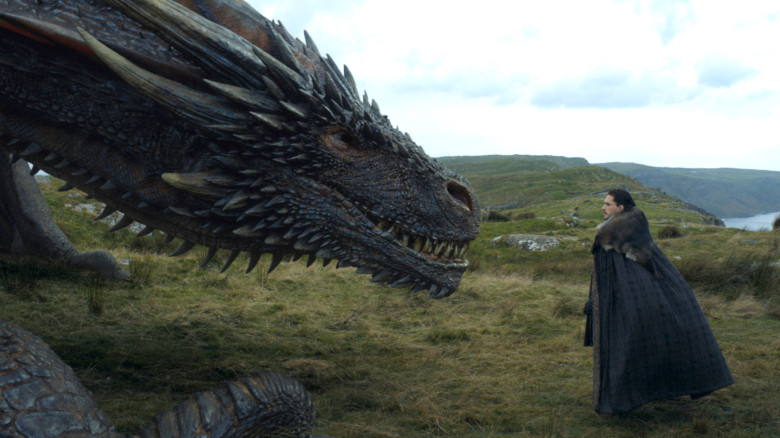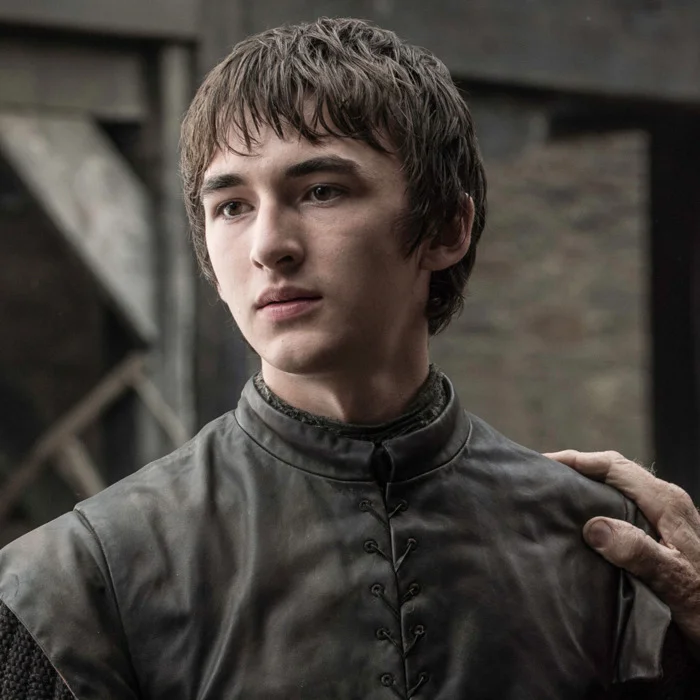I love television...a lot! I grew up with an appreciation for content creation [Ed’s note: He means TV and movies] and watched TV and film [Ed’s note: told you] through a lens most people don’t from a very young age. I admit its strange for a child to watch Darkwing Duck and ask what are the motivations of a given character, but I am who I am. Watching TV as much as I do and how I do doesn’t make me better than any other TV viewer, but I have found it invites healthy debate from friends and family as to what I think of a given show. TV and film are art created for the sole purpose of being judged. I get my judgment. You get yours. And then we get to fight it out.
A long time ago I was asked my opinion by a close friend on Game of Thrones (GoT) in a dinner party setting. I said, “I didn’t really like it.” I wasn’t ready for the sheer disgust that my friends would show as a result of my not liking their favorite show, especially since I had been asked for my opinion. I would have been better off salting their food and laughing about it. Every time I see them they remind me that I don’t like it. They sometimes introduce me as the guy who doesn’t like GoT to their friends and co-workers. Every time this happens the shock from the new person who finds this out is the same. “Really? How? Why?” My friends and their friends struggle with this has gone on for years. Seriously, it’s the biggest argument I have had with friends since Biggie and Tupac. For those of you too young to understand this reference Biggie and Tupac were rappers who died to gun violence back when that was a thing [Ed’s note: He’s being sarcastic here. RIP Nipsey Hussle]. Now rappers just make a ton of money through SoundCloud. In the 90s and 00s. Rappers literally died for their art (luckily, America has solved its gun violence problem since then). It’s important to juxtapose actual gun violence against what I am going to say because Game of Thrones and all arguments about it are make-believe. There’s no need for vitriol or anger, it’s an opinion of one fan of the golden age of television has. Win, lose or draw, we can all bring a healthy debate.
As discussed 213 times already, we are in a golden age of television. If you just Google that phrase you will get some incredible content. Seriously, incredible. Television used to not be this good, the TV airwaves used to be dominated by family sitcoms, family dramas, and Law & Order. Honestly, if you wanted to get great content you had to buy a movie ticket. TV was relegated to watching Friends, Family Matters, and Law & Order [Ed’s note: American Gladiators?]. Relative to TV shows at large, GoT is a good show. After all, shows that are “bad” aren’t this popular. But it isn’t great. For context, the bar for great [Ed’s note: in his humble opinion of course] is “should it be considered in the sphere of the shows that pushed the boundaries of television into a new stratosphere?” To this, my answer is no. For me there are far too many issues for GoT to be considered a great show. Honestly, there are far too many issues for it to be a good show, but it is no longer enough for me to just say these things in a void (wait did I just call my friends vacuous?), I will state my arguments and move on [Ed’s note: will he really?].
Argument 1: It’s Low Fantasy and Therefore Easy
GoT is low fantasy, for those of you who aren’t familiar with low vs high fantasy. High fantasy is a world that is filled with magic and other world devices (vampires, werewolves, talking trees, etc.) that usually pits obvious good “heroes” against obvious bad “villains” (think 1980s wrestling). Low fantasy is a fictional world that closely resembles our own (think a renaissance fair, but with dragons). Not to be repetitive, but a world full of orcs, mages, fairies, dwarves, and magic (lots of magic) is high fantasy. A world with low fantasy operates on rules closer to our world. GoT’s low fantasy world doesn’t make the show bad or good, it makes the show a place for the rules of its own fantasy to operate. The issue I have with GoT isn’t that it’s low fantasy, it’s that in general low fantasy shows have a lower degree of difficulty than high fantasy shows due to the lesser amount of world-building, explanation, and immersion that needs to occur in order for your audience to suspend disbelief. GoT really has no excuse for being a show that suffers from as much lazy writing as it does. Trigger alert: Yes, GoT has lazy writing. It is important to determine why an audience deserves your attention to care and detail as a writer. It is doubly important to do that when the source material is as well loved and respected as GoT’s is. The rules of high fantasy shows are further from reality, so they require more explanation, the more explanation they require the more rules they require for viewers to understand the world they are immersed in.
Argument 2: It’s Low Art and Therefore Lazy
The fact that GoT is low fantasy in no way gives it the right to be low art. It is accessible, but doesn’t really push aesthetics. Ignoring (how could you?) the rapes and excessive violence, the show doesn’t seem to succeed fully at what it is trying to do. Unless that is to tell a story of spectacle (then . . . they nailed it?). However, as a drama I think it has been falling short for at least the last few seasons. One must assume far too much about the desires and wants of each character to far too great a degree in order to suspend disbelief (there’s that concept again) of what the show is trying to tell us. If I were to ask most fans of GoT what characters goals are, they could answer that question with ease: Power! However, most fans cannot answer what most characters’ motivations are because GoT doesn’t do a great job of putting us in each character’s shoes. This could be because there are so many characters (a choice the show-runners made) or the fact that no character is “safe” (this idea is false also, but I will go into detail about why later!). Either direction there is no excuse for this oversight. Strong character development hinges on the audience caring about the character in an intimate way, not just hoping they survive. The perspective for each (or many) GoT character just isn’t there. I would argue that it’s due to an inability for the writers to figure out how to connect the audience to each person’s back story while showing dragons and boobs.
GoT breaks its own rules when it deems it is necessary to up the pacing of its already poorly paced show. For example, in season 7, episode 5 (SPOILERS!!!!!) fast travel mode seems to be engaged as Jon Snow and his hunting party manage to get beyond the wall, grab a wight and come back to the other side of the kingdom. The idea that this is possible isn’t strange, it’s strange only because this was never possible before. In the first seasons of the show, it showed how difficult, treacherous and hard travel was. In this episode a character just popped across the map like he was going down to the corner store (get me a beef patty!). GoT doesn’t abide by its own rules of engagement. Not in a cheeky creative way, but in a “we need this to work for us so let’s just break the rules of our own world. . .way.” That’s literally the definition of lazy writing.




